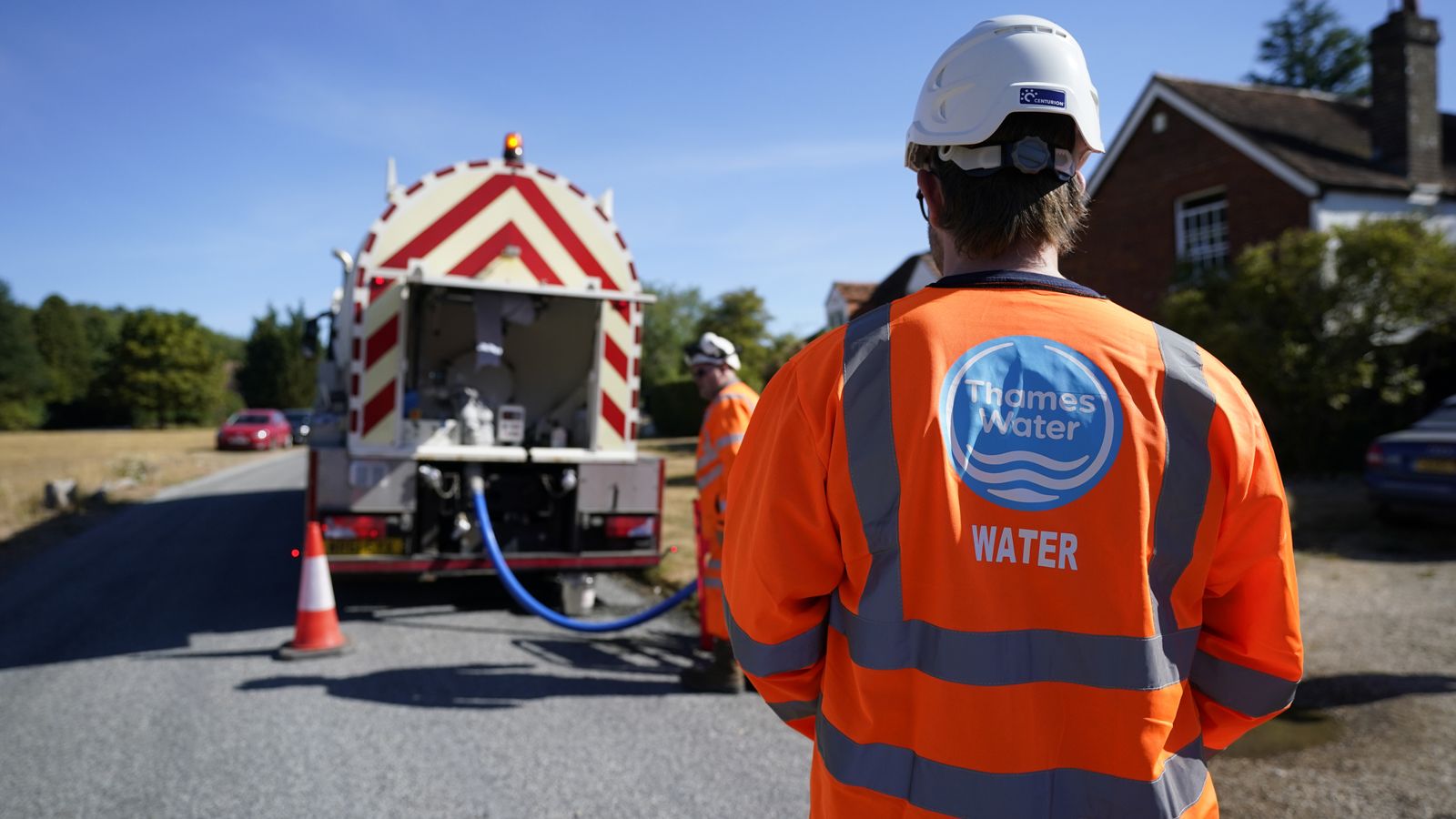Understanding The Controversy Surrounding Thames Water's Executive Bonuses

Table of Contents
Thames Water's Financial Performance and Executive Compensation
H3: Profitability vs. Investment in Infrastructure
Thames Water's financial reports reveal a complex picture. While the company has declared profits, a significant question remains: how much of these profits are reinvested into essential infrastructure upgrades? Comparing executive bonus payouts to infrastructure investment reveals a concerning discrepancy.
- Profits: [Insert specific data on Thames Water's recent profits – source needed].
- Dividends to Shareholders: [Insert data on dividend payouts – source needed].
- Infrastructure Investment: [Insert data on spending on sewage treatment and infrastructure upgrades – source needed].
- Executive Bonuses: [Insert data on the total amount paid in executive bonuses – source needed].
The disparity between substantial profits and comparatively low investment in improving sewage treatment and reducing pollution fuels public anger. Many argue that prioritizing shareholder returns and executive bonuses over critical infrastructure improvements is irresponsible and unacceptable.
H3: The Structure of Executive Bonus Schemes
The criteria used to determine executive bonus payouts at Thames Water lack transparency and raise concerns about accountability. Are these bonuses truly justified given the company's performance and environmental record?
- Key Performance Indicators (KPIs): [List the KPIs used to determine bonuses, including financial metrics and any non-financial goals. Sources needed]. The reliance on potentially easily manipulated financial metrics, without sufficient weighting of environmental performance, is a major point of contention.
- Lack of Accountability: The apparent lack of consequences for failing to meet environmental targets raises concerns about the effectiveness of the current bonus scheme structure. This perceived lack of accountability exacerbates the public’s frustration.
- Conflict of Interest: A clear conflict of interest arises between maximizing shareholder value (a key driver of bonuses) and ensuring responsible environmental stewardship. The current system appears to prioritize the former at the expense of the latter.
The Environmental Impact and Public Outcry
H3: Sewage Pollution and its Consequences
The scale of sewage pollution incidents linked to Thames Water is alarming. These incidents have severe environmental and public health consequences, further fueling public anger towards the company and its executive compensation practices.
- Sewage Discharge Incidents: [Insert data on the number of sewage discharge incidents – source needed].
- Impact on Aquatic Life: [Describe the damage to aquatic ecosystems – source needed].
- Risks to Human Health: [Explain the potential health risks associated with sewage pollution – source needed].
- Fines and Penalties: [Detail any fines or penalties imposed on Thames Water for pollution – source needed].
The environmental damage caused by Thames Water’s failures underscores the ethical implications of awarding substantial executive bonuses while neglecting critical infrastructure maintenance.
H3: Public Reaction and Media Coverage
Public outrage over the executive bonuses, in the context of the ongoing sewage pollution crisis, has been immense. This has manifested in various forms:
- Protests and Demonstrations: [Cite examples of public protests and demonstrations – source needed].
- Petitions: [Mention any significant petitions calling for accountability – source needed].
- Social Media Campaigns: [Highlight examples of social media campaigns expressing public anger – source needed].
- Negative Media Coverage: [Reference articles and news reports detailing public criticism – source needed].
The significant public pressure and negative media coverage have put immense pressure on Thames Water and its leadership, highlighting the importance of public opinion in corporate accountability.
Regulatory Response and Future Implications
H3: Government Intervention and Regulatory Scrutiny
Ofwat, the water regulator, and the government have responded to the controversy, but the effectiveness of their actions is still debated:
- Investigations: [Detail any investigations launched into Thames Water's practices – source needed].
- Fines and Sanctions: [Mention any fines or sanctions imposed or pending – source needed].
- Regulatory Changes: [Discuss any potential changes to regulations concerning executive compensation in the water industry – source needed].
The government's response will play a crucial role in setting a precedent for future corporate behaviour within the water industry.
H3: Long-Term Sustainability and Corporate Governance
The Thames Water controversy highlights the urgent need for improved corporate governance in the water sector, emphasizing the importance of ESG (Environmental, Social, and Governance) factors.
- Transparency and Accountability: Greater transparency in executive compensation structures is vital, alongside stronger mechanisms for holding companies accountable for environmental performance.
- Aligning Incentives: Executive incentives must be aligned with both financial performance and environmental and social responsibility.
- Investor and Consumer Confidence: The controversy damages investor confidence and erodes consumer trust, highlighting the broader economic and societal consequences of corporate irresponsibility.
Conclusion:
The controversy surrounding Thames Water executive bonuses exposes a profound disconnect between corporate profit, environmental responsibility, and public trust. The disparity between substantial profits and insufficient investment in infrastructure, alongside the widespread sewage pollution, has ignited public outrage and demands for accountability. The regulatory response, while underway, needs to be significantly strengthened to address the root causes of this issue and prevent similar situations from arising. We need greater transparency regarding Thames Water executive bonuses and stronger regulations to ensure that water companies prioritize environmental sustainability and the public interest. Contact your elected officials and demand stricter regulations; hold Thames Water accountable for its actions and demand changes to prevent future occurrences of this type of controversy.

Featured Posts
-
 Announcing The Dexter Original Sin Steelbook Blu Ray Get Ready For Dexter New Blood
May 22, 2025
Announcing The Dexter Original Sin Steelbook Blu Ray Get Ready For Dexter New Blood
May 22, 2025 -
 La Salud De Javier Baez Y Su Impacto En Su Productividad
May 22, 2025
La Salud De Javier Baez Y Su Impacto En Su Productividad
May 22, 2025 -
 Nyt Wordle Puzzle Help April 12 2024 1393
May 22, 2025
Nyt Wordle Puzzle Help April 12 2024 1393
May 22, 2025 -
 Is This The End Walliams And Cowells Britains Got Talent Feud
May 22, 2025
Is This The End Walliams And Cowells Britains Got Talent Feud
May 22, 2025 -
 Ancelottis Future At Real Madrid Klopps Agent Weighs In
May 22, 2025
Ancelottis Future At Real Madrid Klopps Agent Weighs In
May 22, 2025
